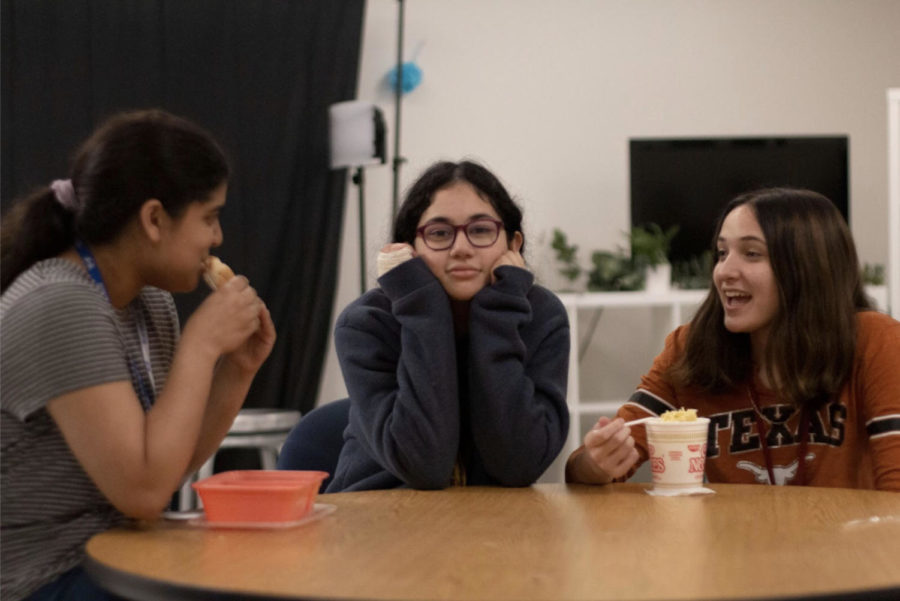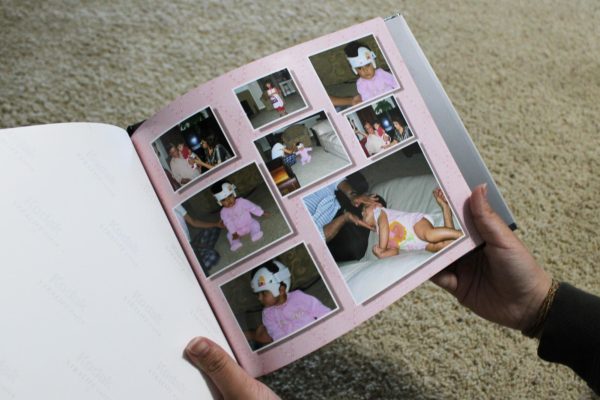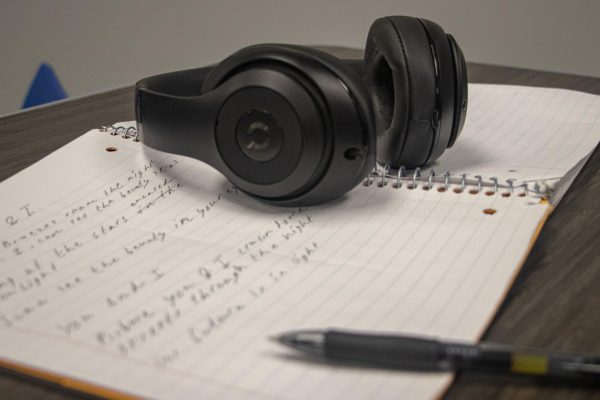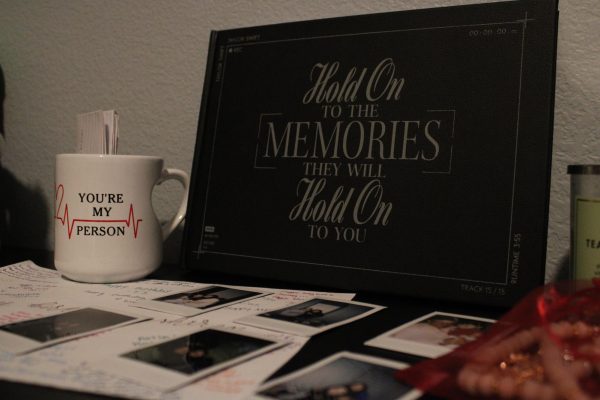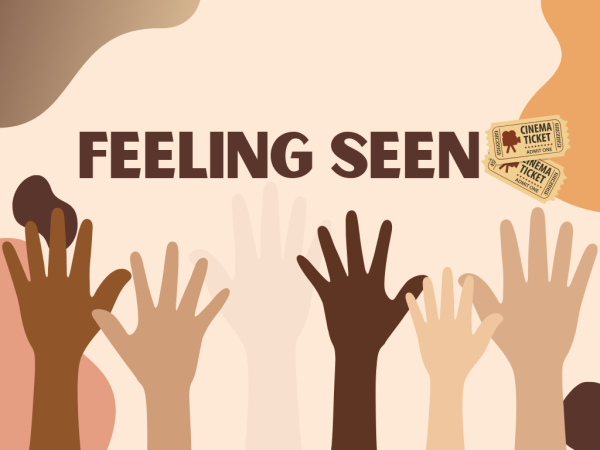Opinion: How it feels to fast during Ramadan
The biggest struggle that I face during Ramadan is lunch time. Lunch time is the hardest time of the day because I usually eat lunch around 1 p.m., which on a regular day would seem fine, but when fasting I feel like I am starving.
There were only 10 minutes left. 10 minutes to drink water and 10 minutes to eat before the 14 hour fast.
“Allah Hu Akbar.”
This is the sound when every Muslim knows that the time is over. The fast has begun.
I have been fasting during Ramadan since I was 7. My parents raised me with religion as a big part of my life, and Ramadan is one of the five pillars of Islam. Ramadan is a time when Muslims are supposed to give back to the less fortunate, read the Quran, pray more, reinforce faith and become closer to God. The reason Muslims don’t eat or drink from sunrise to sunset is to remind them how fortunate they are and how they should give back in the form of Zakat, or charity. Ramadan varies from 29 to 30 days; this year it is 29 days.
The Quran was revealed to Muslims during the time of Ramdan. This Quranic verse gives the underlying reason as to why Muslims fast: to show that they can overcome challenges and that life has many challenges for you to overcome.
فَإِنَّ مَعَ ٱلْعُسْرِ يُس
“So, surely with hardship comes ease.” [94:5]
Every time there are hardships in life, there is something to be grateful for. Every time someone fasts, they should be grateful that they have access to food and water. The hardships that come from fasting are to show what some people face daily when they don’t have access to shelter, food or water.
The biggest struggle that I face during Ramadan is lunch time. Lunch time is the hardest time of the day because I usually eat lunch around 1 p.m., which on a regular day would seem fine, but when fasting I feel like I am starving. That is also around the time that my thirst starts to build up. I have a dry mouth and all my mind goes to is water. Especially since my friends around me are eating and drinking, it becomes increasingly hard to not eat. I definitely would not recommend sitting in the cafeteria when you are fasting.
Having to fast in school is rough. When you can’t drink water for a period of time, you get dehydrated, which leads to slower thinking, fatigue and irritation. Often when people fast, they become impatient, but a key part of fasting is to test how much self control one has. Having to go to school for eight hours, attend extracurriculars after school and then study all without water and food is extremely difficult. During Ramadan, Muslims will pray more, especially at night, which can result in 30-45 fewer minutes of free time. Due to already having a busy schedule, doing extra prayers can be hard to complete.
Something I realized in Ramadan is that fasting doesn’t feel as hard as it used to because of the Muslim community that I have access to in my school. My friends, teachers and Muslim Student Association (MSA) have made fasting easier since I know that I have others who are going through the same thing as me. Since the library has opened up a “special room,” that is essentially a prayer room, praying in school has been much easier because I don’t have to wait to pray until I get home. The atmosphere my school has created for Muslims has created a sense of unity, especially during the time of Ramadan. As someone who has moved from Arkansas and went to a predominately white school growing up, I have never felt the same sense of comfort from non-Muslims before.
During Ramadan, there are times where some Muslims are not able to fast. Some of the reasons include having their period, having an illness that may permit them from fasting or traveling. Non-Muslims may judge others as to why they are not fasting – which can be awkward at times. However, there are many reasons as to why someone may not be fasting. In Islam, all actions start from your intention. You should never judge someone based solely on what you see; in this specific scenario, if they are not fasting.
When living in Arkansas, I was able to have the opportunity to grow up with my mosque. When I first arrived in America in the summer of 2014, my mom dragged me to a mosque to break my fast. Obviously, I wasn’t used to going to a mosque because I had just moved from China, and my mom didn’t take me. When I went for the first time, I was able to pray and break fast with others, not just my family. I fell in love with being able to meet new people from all over the world: Arabs, Turks, Indians, Pakistanis. The feeling is so surreal when people who usually would not talk to one another become like family during the time of Ramdan. I was able to make lifelong friends from that mosque and going to the mosque everyday for Ramadan became a tradition for my family. For seven years of my life, I prayed extra prayers (taraweeh) in a mosque in Jamaat (congregation).
Through social media, different people have different interpretations of what to and what not to do in Ramdan. The sole reason why there is confusion amongst non-Muslims and Muslims about Ramadan and Islam is the fact there are different sectors of Islam. The two main sectors are Shia and Sunni, which both have their own interpretation of what to do and what not to do. For example, the way Muslims pray varies from sector to sector, and the duas (prayers) we read also vary.
The best part of Ramadan is the night before Eid. Decorating the mosque and my home is my favorite activity because of the excitement of knowing that there is a celebration to come. Eid starts in the evening after the last fast, and lasts for three days. I am able to meet all my friends, pray eid prayers, exchange gifts and eat until I feel like I’m going to throw up. In my house, it is a tradition for my grandma to make my favorite Pakistani foods for brunch. In Pakistan, the streets are filled with people celebrating Eid. My schedule gets booked with all the different parties I have to attend. Eid is a day that allows me to leave all my problems and just enjoy a day of excitement. I would describe the day of Eid as just like Christmas, but for Muslims.
As Ramadan comes to an end, the last 10 nights are dearly important to Muslims because of Laylatul Qadr, which means the power of the night. Laylatul Qadr is the time where Muslims believe that the Prophet Muhammad (PBUH) received the first Quranic verses. Even though the last 10 nights will make my already busy schedule busier, I hope through our school’s atmosphere and my excitement for Eid, I can preserve and complete the last few fasts.
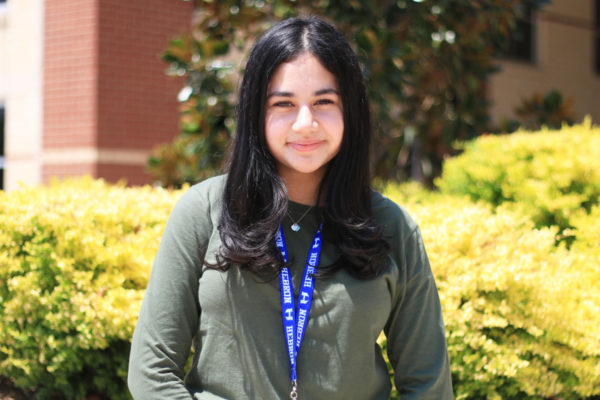
Senior Eyesha Sadiq is the entertainment editor and this is her second year on the staff. When she’s not in the newsroom, she’s either playing with...
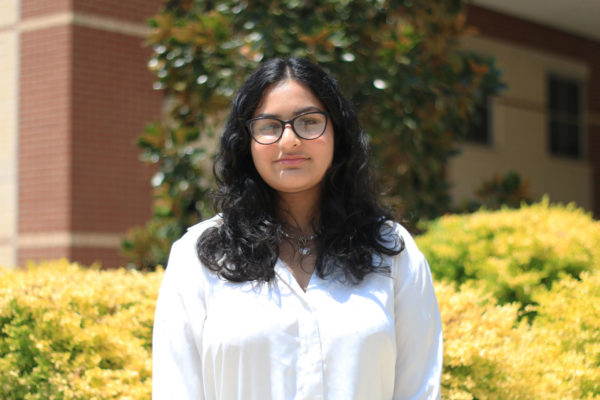
Junior Rahma Shaikh is a reporter and this is her second year on staff. She loves music, reading and autumn. She also has a cat named Belle.



